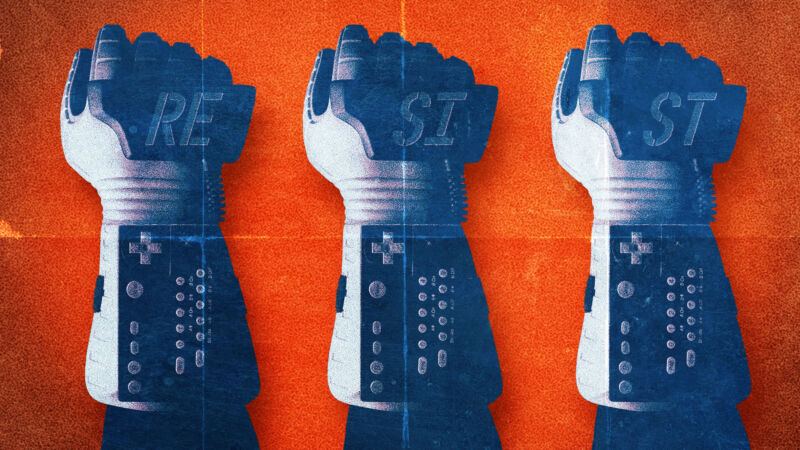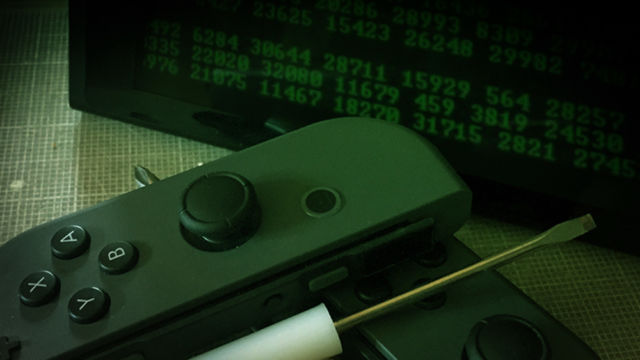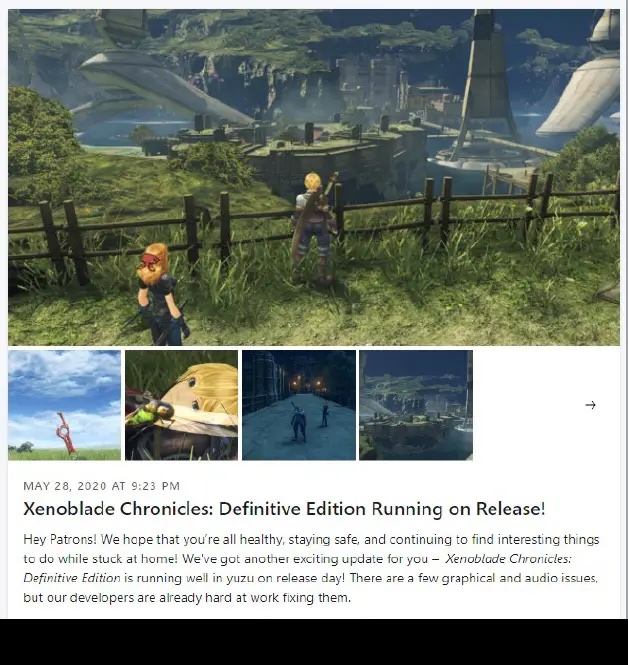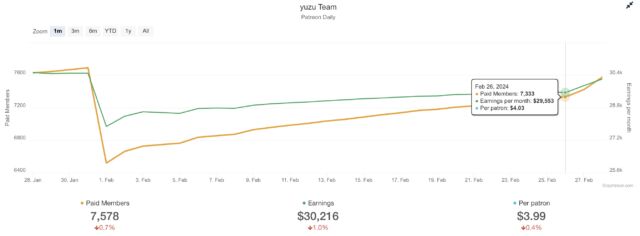“EmuDev” coders cite precautions, legal differences they say will offer protection.

Nintendo’s recent lawsuit against Switch emulator-maker Yuzu seems written like it was designed to strike fear into the heart of the entire emulation community. But despite legal arguments that sometimes cut at the very idea of emulation itself, members of the emulation development community I talked to didn’t seem very worried about coming under a Yuzu-style legal threat from Nintendo or other console makers. Indeed, those developers told me they’ve long taken numerous precautions against that very outcome and said they feel they have good reasons to believe they can avoid Yuzu’s fate.
Protect yourself
“I can assure [you], experienced emulator developers are very aware of copyright issues,” said Lycoder, who has worked on emulators for consoles ranging from the NES to the Dreamcast. “I’ve personally always maintained strict rules about how I deal with copyrighted content in my projects, and most other people I know from the emulation scene do the same thing.”
“This lawsuit is not introducing any new element that people in the emulation community have not known of for a long time,” said Parsifal, a hobbyist developer who has written emulators for the Apple II, Space Invaders, and the CHIP-8 virtual machine. “Emulation is fine as long as you don’t infringe on copyright and trademarks.”
Other hobbyist emulator makers take more serious precautions to protect themselves legally. “I always had some fear of Nintendo’s lawyers coming after my work, which is part of the reason I still keep it private,” said StrikerX3 of his work on a Nintendo DS emulator. “I’ve only released the emulator’s binaries to a handful of people, and only two others have access to the source code besides me.”

And others feel operating internationally protects them from the worst of the DMCA and other US copyright laws. “I have written an NES emulator and I am working on a Game Boy emulator… anyway I’m not a US citizen and Nintendo can kiss my ass,” said emulator developer ZJoyKiller, who didn’t provide his specific country of residence.Advertisement
Stick to the old stuff
Some of those potential legal precautions might seem a little insufficient on further inspection—a lack of copyrighted code in the emulator wasn’t enough to protect Yuzu from Nintendo’s legal sights, after all. Still, other emulator developers pointed out a number of differences in their projects that they felt set them apart.
Chief among those differences is the fact that Yuzu emulates a Switch console that is still actively selling millions of hardware and software units every year. Most current emulator development focuses on older, discontinued consoles that the developers I talked to seemed convinced were much less liable to draw legal fire.
“There is a difference between emulating a 30-year-old system vs. a current one that’s actively making money,” Parsifal said.
In a response on the Yuzu Discord, the development team wrote, “We do not know anything other than the public filing, and we are not able to discuss the matter at this time.” Multiple developers who work on Ryujinx, another prominent Switch emulator, have yet to respond to a request for comment from Ars Technica.
“The consoles I’ve worked on [such as the Nintendo 3DS] don’t really generate much revenue anymore,” one anonymous dev said. “It would be a waste of time to sue like they did Yuzu.”
“There is a difference between emulating a 30-year-old system vs. a current one that’s actively making money.”
Emulator developer Parsifal
Systems from before the turn of the millennium also often fall into something of a different legal category, developers pointed out, if their software and/or hardware was not protected by any encryption. That means emulators for those older systems don’t have to worry about falling afoul of the strict anti-circumvention portions of the Digital Millennium Copyright Act. Developers have also reverse-engineered open source BIOS and BootROM files for some classic systems, eliminating the need to distribute that copyrighted code or even ask users to provide it.
“For most [older] emulators, users don’t have to break copyright [or encryption], at all,” Lycoder pointed out. “A lot of talented people have worked on methods to dump [copyrighted] BootROMs, firmware, etc. out of original hardware, any user that owns an original system should be able to dump these files themselves.”
Legal differences aside, emulator developers also pointed out some major philosophical differences in working on consoles that are no longer being actively marketed. “In my opinion, emulating the Switch at the moment has nothing to do with preservation,” one anonymous developer told me. “The developers might be enthusiasts and passionate but they need to be very naive to think it’ll be used for lawful preservation and use.”
Did Yuzu screw up?
Many emulator makers also largely agreed with Nintendo’s arguments that Yuzu developers were too explicit about guiding users on how to play copyrighted games through channels like their Quick Start Guide and Discord channel. “I think Yuzu definitely crossed some line when they started explaining how to actually pirate games,” one anonymous emulator developer told Ars.
“I’ve personally experienced how strict most emulator communities/discord servers/forums are regarding copyright and piracy, so it’s really weird to me that Yuzu devs wouldn’t be like that,” Lycoder added.

Developers also felt Yuzu probably drew unwelcome attention by working to emulate leaked games like The Legend of Zelda: Tears of the Kingdom even before they were officially released, a practice that took center stage in Nintendo’s lawsuit.
“If Yuzu… didn’t say anything about how to get decryption keys—or show games that have not yet been released being emulated, which obviously requires pirating those games and/or obtaining them illegally—it wouldn’t have given Nintendo a reason to sue them,” ZJoyKiller said. “I think emulating games which have a release date of tomorrow is not very optimal for not being sued,” another anonymous developer added.
Shake your moneymaker
Emulator developers I talked to also pointed out the fact that the Yuzu development team currently makes upward of $30,000 every month through a Patreon campaign. That could imply “that their goal is profit-making and not educational,” ZJoyKiller said, which is at the very least a suspect look in parts of the community.
“The fact that they are making money is a big no-no, definitely how you can get on the [legal] radar,” Parsifal said. “Charging for it puts you on really shaky legal ground,” an anonymous dev added. “Companies could definitely play up the whole ‘making money off of our intellectual property’ thing.”
Another anonymous coder pointed out that, while charging for certain emulator features can “allow developers to work full-time on them,” that money can also lead to “a lot of pressure to make things work ASAP like when Breath of the Wild and Tears of the Kingdom were released. There’s an incentive to make things work (even if for piracy) and the expectation when you’re paying them.”Advertisement

Even developers who don’t have a philosophical problem with charging for an emulator suggested it might not be the best idea for avoiding conflict with the console makers. “Everyone has the right to be paid for their work,” ZJoykiller said. “However, when the Camorra gets into Cosa Nostra’s territory there are usually fights…”
No fear
Among the developers I talked to, it doesn’t seem like Nintendo’s new lawsuit has had much of a chilling effect on the work they’re continuing to do on a wide array of emulation projects. “It’s more of a reminder to keep up best practices that I already try to follow,” one anonymous developer told me. “It’s not going to stop me from making emulators,” StrikerX3 added.
The biggest practical concern arising from the lawsuit among some emulator developers had more to do with the image of their hobby in the wider world. “It increases an existing concern that a potential employer might look at my repos with the belief that emulation is illegal or encourages piracy,” one anonymous emulator coder said. “That’s not the only motivation, but it’s one of the reasons I’m trying to build an emulator that only runs off a cartridge plugged into the host… I’m hoping that making my emulator with this twist is enough to assuage concerns about emulation legality before I get an interview somewhere.”
For the most part, though, a healthy fear of Nintendo’s litigiousness seems to have been baked in well before this week’s legal developments. “From a personal standpoint, it just reinforces that if I were to write a Nintendo emulator, even of an old system, I’d probably keep my repo completely private,” ZJoyKiller said. “Or if public, I’d do so under a different account. But I’ve always thought this anyway. So… no, this ruling doesn’t change much on how I see this.”




